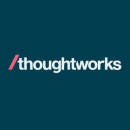
If the past few years have proven anything, it’s that change doesn’t happen overnight. And yet, change is made possible by those who have the patience and grit to pursue it. As police brutality and systemic racism continue to plague our society, the need to enact real reforms has become more important than ever, and it’s influencing the ways in which organizations do business on an internal level.
The ever-increasing need for radical social change has ushered in a new era — one defined by diversity, equity and inclusion (DEI). For companies nationwide, the desire to foster diversity, equity and inclusion within their organizations has become a central component of their business strategies. As companies continue to develop employee-led groups and new initiatives dedicated to DEI, the need to keep these key principles in line with their business goals has become a top priority.
Yet, driving DEI should go beyond the formation of initiatives and groups. According to Tarsha McCormick of ThoughtWorks, Jaime Engle of Civis Analytics and Chanté Thurmond of VillageMD, DEI should be incorporated into every aspect of the organization, from recruiting practices to performance evaluations. These leaders recently caught up with Built In Chicago to discuss the DEI initiatives they’ve led and how they think tech companies can address challenges related to diversity, equity and inclusion.
ThoughtWorks is a global software consultancy dedicated to solving complex problems with technology. The company’s mission is to help its clients strengthen their technology, scale with flexibility and develop seamless digital experiences. As ThoughtWorks’ Head of Diversity, Inclusion and Social Change, McCormick is at the forefront of driving DEI across the organization.
What's the number one thing every tech company should do right now to improve diversity (of all kinds) in their organization?
The number one thing every tech company should do right now to improve diversity in their organization is to take a two-pronged approach to assessing and planning. Completing a holistic organizational assessment of policies and practices will help you identify areas of the business that may require additional attention in order for you to improve your diversity. The assessment should focus on all areas that impact how you recruit, retain, grow and support candidates and employees. Recruiting practices, policies, benefits, compensation, performance evaluations, learning and development are a few areas to consider. These are also areas that are key in attracting and retaining a diverse workforce.
After completing an assessment, the next step is to create a strategic diversity, equity and inclusion plan that identifies focus areas identified in the assessment. More importantly, the strategic plan should include the actions you will take to address, mitigate, create or enhance your practices to improve your workplace diversity. A few examples might include creating a gender transition policy, designating gender neutral restrooms, creating a mother’s room for breastfeeding moms and facilitating discussions about unconscious bias, gender, race and intersectionality. Good intentions do not always yield results, so it is important to have a plan, determine your measures of success, evaluate frequently and pivot as needed.
Aside from driving diversity, what's the number one thing every tech company should do right now to improve inclusivity and equity in their organization?
The number one thing every tech company should do right now to improve inclusivity and equity in their organization is to make diversity, inclusion and equity a priority! Educating leaders of the business on DEI and being transparent about where they are in their DEI journey helps. Creating a diverse, equitable and inclusive workplace where employees feel a sense of belonging starts with the company leaders. While each person in an organization contributes to fostering an inclusive workplace, ultimately it is up to the leaders to lay the foundation, educate themselves, set the example, be accountable, have the difficult conversations and embed and align DEI with the overall strategic goals of the business.
Inclusion matters to both employees and candidates, and they are paying attention. A recent McKinsey & Company survey showed that 50 percent of candidates who identified as LGBTQ+, 45 percent who identified as a racial or ethnic minority and 39 percent overall chose not to pursue a job because of a perceived lack of inclusion. Given these findings, and factoring in the recent civil unrest, renewed focus on anti-racism and historical data about the overall lack of diversity in IT, it is unwise not to make DEI a priority.
Good intentions do not always yield results, so it is important to have a plan, determine your measures of success, evaluate frequently and pivot as needed.
Of all the DEI initiatives you've led, which has been the most impactful, and why?
To date, the most impactful DEI initiative that I have led has been our D&I engagement surveys. The surveys allow us to identify underlying themes from the employee perspective in the six areas of communication, voice, inclusion and belonging, growth and development, diversity and resources. Our inaugural survey helped establish a baseline for our future surveys and allowed us to track progress and measure success year over year. The surveys have been an additional avenue for us to engage our employees and learn what matters most to them. In fact, much of the work we do in the DEI space, including several initiatives, are the result of feedback and data from the surveys. Overall, the feedback and data help us continue to make ThoughtWorks more diverse, equitable and inclusive.
Civis Analytics helps businesses, nonprofits and government agencies utilize data in order to identify, attract and engage customers, constituents and citizens. The company aims to bring objective, data-driven truth to organizational decision-making. As Civis Analytics’ Manager of Talent Acquisition, Engle plays a leading role in sourcing and vetting potential candidates.
What's the number one thing every tech company should do right now to improve diversity (of all kinds) in their organization?
Companies need to take an honest look at their DEI stats and assess where they can improve. Define what diversity means at your company. It is certainly inclusive of different races and genders but should also include veterans, parents, candidates over 40 and those with differing worldviews to showcase diversity of thought. Once you assess where the company needs to improve, you can set goals to work toward. For example, we’ve determined we do a better job at recruiting women than many other tech companies but have more room for improvement in the percentage of people of color we hire. Diversity is never done, but if you don’t determine a baseline, you won’t be able to make progress or measure outcomes.
Aside from driving diversity, what's the number one thing every tech company should do right now to improve inclusivity and equity in their organization?
Create and maintain fair and consistent hiring, promotion and exiting practices. Create a process, and stick to it for everyone. This can be particularly challenging in a startup environment when things evolve from “the Wild West” to a growing mid-stage business where effective process creation is imperative for scaling purposes.
Try hard to educate employees on why changes are being made to build consensus and to prevent an “us versus them” environment between HR and the rest of the organization. We view DEI initiatives as a companywide effort but specifically think of it this way: the diversity of the candidate pool is owned by recruiting, the equity of all processes is owned by HR and the creation of an inclusive environment employees don’t want to leave is something all employees are responsible for.
Diversity is never done, but if you don’t determine a baseline, you won’t be able to make progress or measure outcomes.
Of all the DEI initiatives you've led, which has been the most impactful, and why
Implementing the Rooney Rule for all positions has been the most impactful DEI initiative we’ve taken on. We’ve committed ourselves to interviewing a woman and/or a person of color for every position before a hiring decision is made. In some cases, this lengthens our process and causes roles to stay open longer, but we believe the trade-off is worth it in order to see a more diverse panel of candidates.
VillageMD is dedicated to creating a more rewarding experience for patients and physicians. The company works with primary care practices in addition to its own brand, Village Medical, to provide solutions that support data-driven decision-making. As VillageMD’s Director of Diversity, Equity and Inclusion, Thurmond plays an integral role in fostering a diverse and inclusive workplace within the company.
What's the number one thing every tech company should do right now to improve diversity (of all kinds) in their organization?
My number one rule is to stop using diversity as a leading metric! When we start with diversity, it almost inevitably sends leaders down a path that is hyper-focused on vanity metrics that obscure the real reasons your organization is experiencing a lack of diversity in the first place. Rather, I would encourage leaders to shift their focus to creating greater inclusion, equity and accessibility.
Aside from driving diversity, what's the number one thing every tech company should do right now to improve inclusivity and equity in their organization?
Start by leveraging your number one asset: your people! It's absolutely vital that we prioritize listening to, learning from and centering the voices of Black, Indigenous and People of Color (BIPOC) and those most underrepresented. Rather than guessing or seeking the opinions of outsiders to tell you how to improve DEI at your company, I strongly encourage leaders to start directly asking your current employees what they would like to see your organization do to improve inclusion and belonging. If you don't have any BIPOC folks working at your company (that should also be a red flag), consider reaching out to your stakeholders such as customers, clients and partners. The point is there's a lot of power in leveraging the inherent wisdom of your network.
Furthermore, take the time to understand the nuances between employee engagement and employee happiness. There are many people who are tolerating their work environment because they need their job but are miserable because of organizational culture that feels oppressive or has non-inclusive policies, inequitable working conditions or a lack of long-term opportunities to advance.
We want to provide safe and affirming spaces for our teammates to express their feelings and everyday experiences.
Of all the DEI initiatives you've led, which has been the most impactful, and why?
Over the past couple of months, we've facilitated a series of "Courageous Conversations" and "DEI Listening Circles" that have centered the voices of our Black colleagues. We want to provide safe and affirming spaces for our teammates to express their feelings and everyday experiences. We've received powerful feedback from people throughout the entire organization who have shared their profound gratitude for the opportunity to learn directly from their co-workers. We've had lots of requests to keep facilitating these conversations, so we absolutely will!











